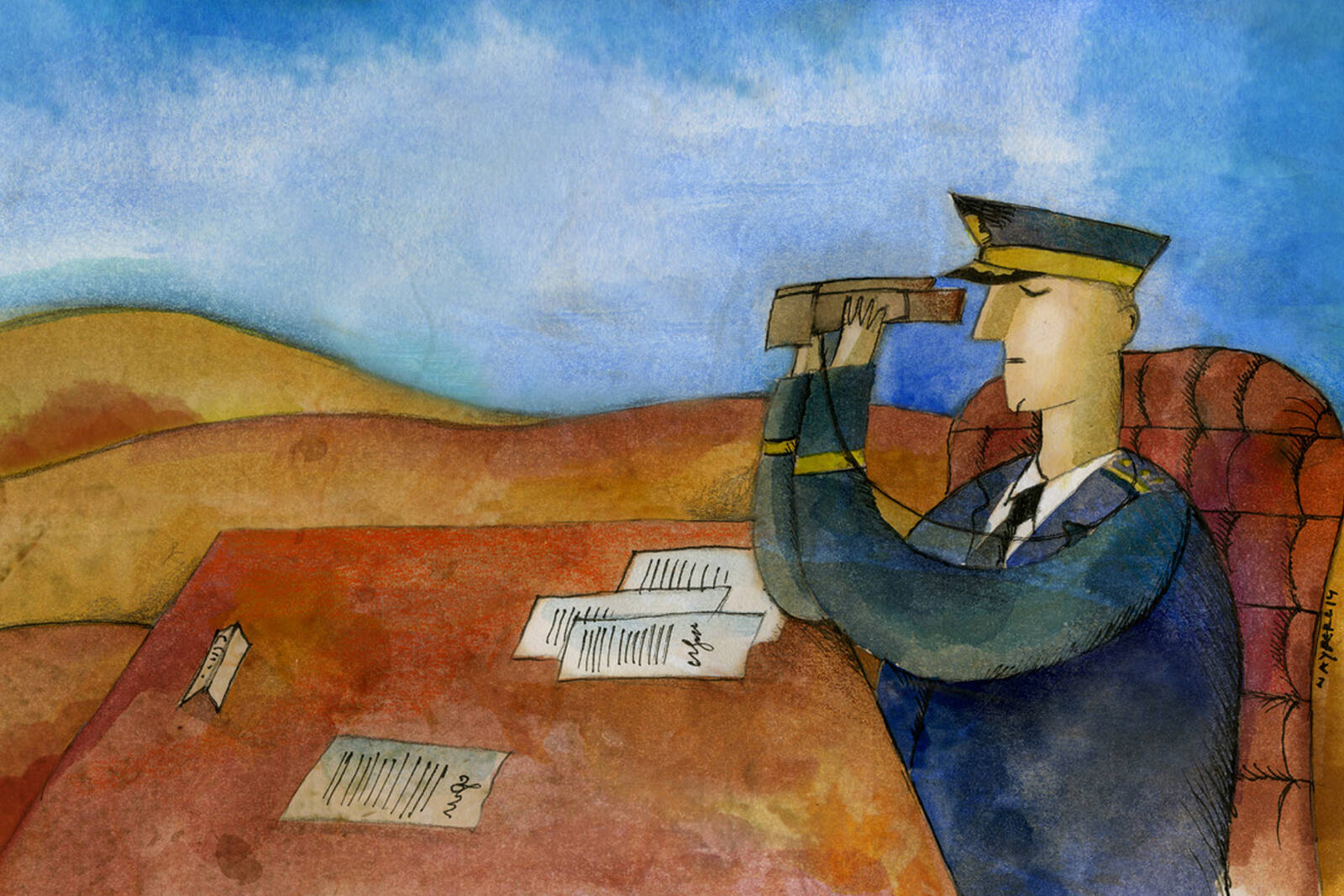

Yevgenia Nayberg
Over the course of my 25 years of military service, I have acquired valuable lessons in leadership, time management, and organizational operations. Since soldiers are short on time, sharing these lessons with them as succinctly as possible communicates both the idea I want to get across and the value I place on their time. While the military is not the boardroom or the executive suite, fundamental ideas like these should be applicable to your own work as an executive.
Every step you take shows your leadership, so don’t run in the Pentagon.
You are standing in line for coffee at your company’s cafeteria one morning when a director darts by with a printed PowerPoint slide in his hand. You may start to speculate: What could possibly be wrong? Has something drastic happened that we don’t know about? Is that one piece of paper going to save the company from imminent demise?
Now imagine a Colonel or Navy Captain running past you in the halls of the Pentagon. Has World War III started? Should we all be running? Keeping a cool head projects an awareness of the larger situation and the ways your actions may be interpreted by those around you.
Recognize the importance of flexibility in time management because your best-laid plans may not survive first contact with the rising sun.
In the military, as in many organizations, the demands of the day can shift suddenly. With this in mind, managers and executives should emphasize the creation of flexible, proactive plans with a focus on achieving goals instead of simply reacting to the perceived crisis du jour. Failure to communicate priorities leaves everyone in suspense and may have team members wrongly assuming the newest request supersedes other work priorities.
Flexibility is also required to understand and react to the nuances of your organizational culture. I remind my Soldiers never to try to turn in ammunition at the ammunition holding area on Friday afternoons. Why? Holding areas are staffed by workers who are very eager to close up shop for the weekend. If the holding area closes before you get through the line to check in your ammunition, you are going to be babysitting it until Monday morning. Schedule accordingly.
Practice tactical patience, or think before moving toward the sound of the guns.
Most people would instinctively recoil from the sound of gunfire in the distance. In the military, we are conditioned in many cases to do the opposite. But if young platoon leaders move too quickly, based on incomplete or garbled information, they may discover that they have placed the platoon deeper into the enemy’s line of fire.
Leaders and managers are responsible for creating a culture where tactical patience is prioritized.
As the primary conduit of critical information, platoon leaders need to keep a clear head and an eye on the entire field at critical points in a battle. This requires tactical patience, or allowing a situation to develop before reacting. Leaders are then prepared to synchronize the information flowing into and out of the unit command post, provide timely and incrementally coherent information, and react decisively.
Other organizations experience similar conditions when faced with a crisis. Leaders and managers are responsible for creating a culture where tactical patience is prioritized. This can be done by stressing that reporting procedures include strict adherence to reporting channels, thereby minimizing the chance for incomplete answers or missed reports. Demonstrating confidence and intestinal fortitude relaxes both subordinates and superiors.
Circulate the battlefield without giving orders.
As a leader, one of the most important tools for understanding the climate of your organization is through conversation with your teams. In flattened organizational structures, this kind of communication is often encouraged. But the military’s hierarchical structure can inhibit lower-ranking soldiers from speaking up to their superiors.
A receptive battlefield circulation, where I essentially go around to the troops and speak to them without giving them any orders, puts them at ease and makes them more likely to tell me what they see, what they need, and what they think will help them be effective. I ask them about their families, about the conditions around them, and about whether they have the resources to do what is being asked of them.
As an executive, you may be hard-pressed to sense everything that is happening throughout your organization, and subordinates may not engage you in conversation for fear of being handed additional work. Routinely circulating among staff in their environment helps to shape your knowledge, provides situational understanding of the corporate climate, and ensures subordinates understand corporate priorities. Sharing what you have learned in these “walkabouts,” without attribution, generates buy-in from your direct reports and encourages others to be more open about what is happening at all levels of the company.
Col. Michael Musso is U.S. Army Chief of Staff Senior Fellow at the Kellogg School of Management.



